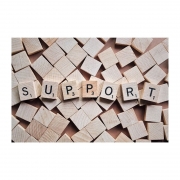Responding to the needs of the sector – assessment relaxation
During the Covid pandemic, we have been keen to support our social enterprise community in any way we can. We recognise there is likely to be long-lasting economic consequences for many social enterprises (like all other businesses), including a drop in their trading income following an increased reliance on grants and funding to support them through the crisis. Some may even have ceased trading temporarily due to national restrictions on businesses in certain sectors.
 As social enterprises work to re-establish their businesses in the aftermath of the Covid outbreak, we are keen to support them to get back on their feet, whilst continuing to recognise them for meeting recognised standards of good practice.
As social enterprises work to re-establish their businesses in the aftermath of the Covid outbreak, we are keen to support them to get back on their feet, whilst continuing to recognise them for meeting recognised standards of good practice.
Therefore, we have consulted our Accreditation Panel and they have agreed a temporary relaxation of the Social Enterprise Mark assessment criterion around trading income.
We will continue to ask new applicants and existing Mark Holders to report their income levels, so that we can assess how social enterprises have been affected; but provided the trading criterion requirement* was being met before the outset of the pandemic lockdown, any failure to meet it following this will not count against an organisation’s eligibility to hold the Social Enterprise Mark (and similar conditions will apply for our other accreditations).
We hope this measure will alleviate pressure on our existing Social Enterprise Mark network, as well as encouraging other social enterprises to consider joining our pathway to recognised standards of good practice and excellence.
We remain responsive to the challenges facing the sector and will continue to consider adjustments to our processes, while continuing to deliver meaningful accreditation services.
If you have any questions around the assessment requirements, please contact Richard Cobbett, Assessment and Compliance Manager.
*The trading criterion normally requires organisations to demonstrate that they have been recently trading and that at least 50% of their income has derived from sales and fees, or similar receipts in respect of services and product outputs, as opposed to support grants, loans, interest, donations and other similar types of income.





